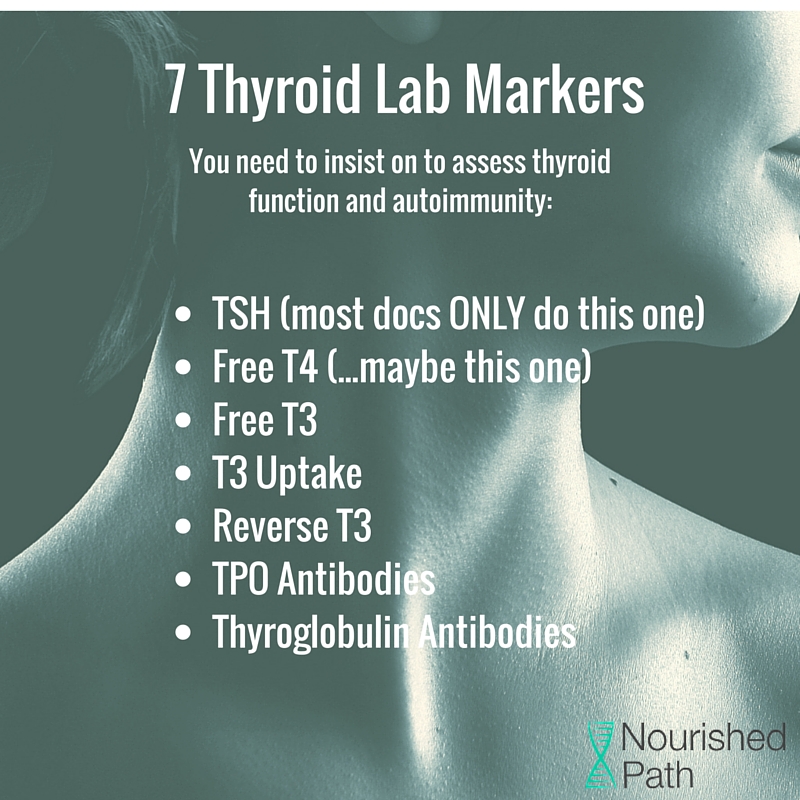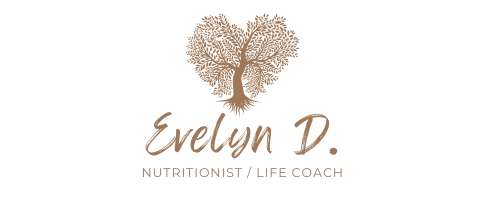What is the optimal Hashimoto’s Thyroiditis Diet?
First, it’s important to look more closely at the underlying causes of Hashimoto’s. It’s an autoimmune process where antibodies attack thyroid tissues, effecting thyroid function, making it underactive.
Most hypothyroid cases are autoimmune in nature, although many go undiagnosed as such because conventional doctors tend to only look at TSH – maybe T4 – ignoring other key thyroid functional markers and thyroid antibodies which would indicate autoimmune thyroid disease.
Conventional doctors do this for a simple reason: The treatment for Primary Hypothyroid Disease and Hashimoto’s is identical – Synthetic T4 medication.

All too often with autoimmune disease, the focus is placed on the area affected – and rightfully so to some extent – since that’s where symptoms and the disease process presents. With conventional medicine, the approach usually results in a prescription and the causative factors are rarely even considered.
Research has shown that autoimmunity begins in the gut. Think of the proverbial three legged stool: There are three factors necessary to bring on the autoimmune response: a genetic predisposition, a trigger/triggers and gut barrier inflammation.

It’s more complicated than this, but in simple terms, a state called “leaky gut” or intestinal permeability is one of the key culprits in the autoimmune process.
So as a functional nutritionist, when I’m looking at managing Hashimoto’s – my own, my daughters’ AND and my clients, I’m always looking at the 2 legs of the stool we can control: the gut and the triggers.
And that boils down to what we eat, how we eat and our exposures to stress – physical, mental, emotional and even spiritual.
Diet’s the easiest to address in my experience.
In Hashimoto’s, thyroid function is compromised so you want to ensure that the diet consists of all the cofactors needed for optimal thyroid function BUT the foods must not contribute to gut inflammation, immune activation or blood sugar imbalances.
These would include foods rich in:
- iodine (seaweed, wild fish)
- selenium (Brazil Nuts, wild fish)
- tyrosine (organic/pastured poultry, wild fish)
- iron (grass fed/pastured/organic beef, leafy greens)
- zinc, copper, other minerals (wild shellfish, pastured/organic animal proteins/organs, dark chocolate)
- Vitamin A, D, K & E (wild fatty fish, pastured/organic animal proteins, pastured/organic organ meats)
- B vitamins (pastured/organic organ meats, wild fish, pastured/organic animal proteins, seeds, nuts, greens and veggies)
- fermented foods to support the gut microbiome
Foods to avoid:
- gluten
- dairy – especially A1 casein protein containing dairy (the most common cow dairy on the market). Some people can tolerate small amounts of A2 dairy found in goat, sheep and specific cow dairy
- corn – can be cross-reactive with gluten and GMO corn effects the gut
- excessive soy products (from both a gut and thyroid perspective, too much soy is not good) – organic fermented soy in small amounts is usually fine.
- GMO foods – genetically modified foods are associated with leaky gut
- commercial raised/GMO fed animal products including eggs, fish, poultry and other meats (“we are what our meat eats” so choose wild, organic, grass-fed or pastured when you can)
- refined flours including gluten free flours and related processed foods
- sugar/high carbohydrate foods
- excessive raw goitrogenic foods (kale, cruciferous veggies) – these foods are super beneficial and nutrient dense, but they’re best cooked or, if consumed raw, in moderate amounts.
Because of the connection between the Hypothalmic-Pituitary-Thyroid-Adrenal and Ovarian Axis, I find most people with Hashimoto’s do best on a low carbohydrate diet because of the effects of stress on the adrenals, gut, thyroid and blood sugar regulation.

Keto works beautifully with Hashi’s because it’s delicious, gut friendly and anti-inflammatory, but if the ketogenic approach isn’t for you, just aim to keep carbs under 100 grams per day (that’s 1 to no more than 3 or 4 one cup servings per day) from whole food sources like fruit, vegetables, nuts, seeds and, if tolerated, small amounts of grains and beans.
BOTTOM LINE: You HAVE to eat nutrient dense, real food in the right balance and get off the breads, wraps, pastas, (including gluten free) snacky carbs and sugar if your Hashimoto’s or autoimmune disease, symptoms, weight or blood sugar is not where you want it to be.
To give you an idea of what this may look like, here’s what I eat to support my thyroid, immune system and blood sugar (I’m Keto and practice Intermittent fasting):
Lots of water throughout the day and coffee with cinnamon in the morning.
Break “fast” at 11am-ish with either:
- 2-4 Brazil nuts, 2 pastured eggs with kelp/seaweed sprinkles, 2 slices pastured bacon or turkey sausage, 2 cups leafy greens, raw sauerkraut
- 2-4 Brazil nuts, Large mixed green salad with cucumbers, onion, grape tomatoes, pumpkin seeds or sunflower seeds, 1/2 avocado, with ideally, sardines, salmon, tuna or leftover chicken, raw sauerkraut and avocado oil mayo
- 2-4 Brazil nuts, 1 cup Plain Kite Hill Almond Yogurt with 1/4 cup walnuts, 1/4 cup wild blueberries, cinnamon, hemp hearts, stevia
- 2-4 Brazil nuts, PurePaleo Chocolate smoothie with 1 T fish oil, 2 T sunbutter, broccoli sprouts/greens – sometimes MCT oil
- This is where I’ll also take my supplements. My Hashimoto’s specific ones include Thyroid Synergy and Anatto with Black Cumin Seed.
Dinner might be something like:
- Rotisserie Chicken with roasted veggies
- Grass-fed burger or chicken thigh over salad with avocado and mayo
- Wild Salmon with roasted veggies
- Grass-fed Ribeye with broccoli and tahini sauce
- Crockpot Pastured Pork Roast with veggies
- Grass-fed Chili with avocado or some sort of hearty casserole, stew or soup
A snack might be:
- seaweed snacks (I wish I liked these more, so I force myself to eat them sometimes for the nutrients :))
- macadamia nuts, or a closed handful of nuts or seeds/1-2T nut/seed butter
- grassfed/pastured jerky
- pastured pork rinds (Epic, 4505 or Pork Clouds)
- dark chocolate or stevia sweetened hot cocoa drink
- Kevita, seltzer
- fatty coffee/tea
- 1/2 avocado with sea salt
- olives
That’s about it! Super simple and satiating – and best of all, supportive of my gut, thyroid, hormones and immune system.
Now it’s your turn: What are some of your favorites nutrition approaches or foods for Hashi’s, autoimmunity or overall health? Or tell me where you feel stuck when it comes to your thyroid, gut and eating to support your health or metabolism?





One thought on “My Hashimoto’s Thyroiditis Diet”
i have had a swollen thyroid for years and believe i have hashimotos. i just got my ct scan of my thyroid back and the doctor says the tests dont really identify the autoimmune issue so the doctor wants me to go to a surgeon and perhaps have a biopsy,ect. Do you recommend i change my diet (which has been high carb and gluten and sugar) to the keto diet and see if that makes a difference first?